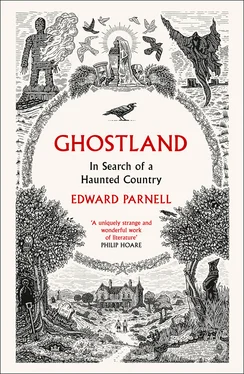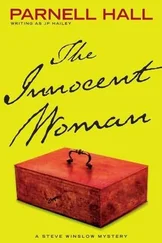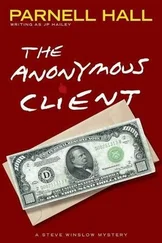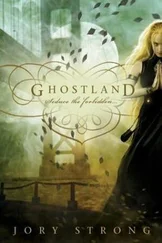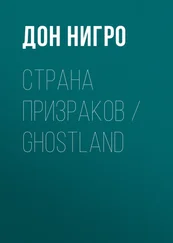In common with many other Victorian and Edwardian writers of note, Kipling occasionally turned his hand to supernatural tales, a good number of which reflected the mysticism of India. A few though take place in Kipling’s adopted Sussex, the land of Puck – among them a work of utmost poignancy that reveals the depth of his sorrow following his daughter’s death.
Kipling’s ‘They’ first appeared in the August 1904 edition of Scribner’s Magazine , and was anthologised later the same year in Traffics and Discoveries . An illustrated standalone version was published by Macmillan in 1905, which indicates the story’s popular appeal – George Bernard Shaw, for example, sent a copy of Scribner’s to the leading actress of the age, Ellen Terry, wondering whether she would consider playing the part of its main female character if Shaw could persuade Kipling to adapt the story into a play; she declined, stating that it was ‘wondrously lovely’, but that the ‘stage would be too rough for it I fear’.‡‡
In ‘They’, Kipling writes beautifully about the wooded enclaves of the Sussex countryside. Clues in the text point to the story being set somewhere around the hinterland of the village of Washington, a few miles north of Worthing and forty miles west of Bateman’s. When we are first introduced to the narrator it is very late spring, for – despite the brightness of the sun, at least where it’s able to puncture through the tunnels of hazel, oak and beech – there are reminders of the fleetingness of the seasons and the implacability of time in the already gone-over spring flowers: ‘Here the road changed frankly into a carpeted ride on whose brown velvet spent primrose-clumps showed like jade, and a few sickly, white-stalked bluebells nodded together.’
The narrator freewheels his vehicle along a leaf-strewn track, descending into sunshine and a vision of an archaic house set among a great lawn populated by topiary horsemen and their steeds. Stopping his car in the grounds of this idyll of Old Albion, the protagonist spies two children watching him from one of the house’s upper-floor windows, and hears juvenile laughter coming from behind a nearby yew peacock. The owner of the Tudor mansion appears, a redoubtable blind woman (we learn in passing that she is Miss Florence) who we half-expect to berate the motorist for his noisy intrusion. The narrator expects to be scolded too and begins his excuses about taking a wrong turn, though the lady isn’t at all bothered, and instead hopes an automobile demonstration can be put on for the elusive children.
‘Then you won’t think it foolish if I ask you to take your car through the gardens, once or twice – quite slowly. I’m sure they’d like to see it. They see so little, poor things. One tries to make their life pleasant, but –’ she threw out her hands towards the woods. ‘We’re so out of the world here.’
After driving his host around the grounds the visitor departs. When he returns again a month later, by which time the trees are in verdant full leaf, his car develops a fault in the woodland not far from the house, and he makes a noisy show of repairs, hoping it might entice in and amuse the shy youngsters. The blind proprietress instead appears and the two chat good-naturedly, though the narrator thinks he is being left out of some enormous secret by the lady and the little ones, who have by now gathered stealthily behind a bramble bush with their fingers held to their lips. Any revelation is halted by the arrival of a lady from the village, Mrs Madehurst, the owner of the shop; it transpires her infant grandson is seriously ill, and so the motorist volunteers to use his vehicle to fetch a doctor, before being enlisted on an extended expedition to taxi in a nurse.
When the narrator returns for a third and final time, autumn is beginning to set in on the hills and woods, with a chill fog permeating well inland. Kipling writes of the change that has come upon the natural world: ‘Yet the late flowers – mallow of the wayside, scabious of the field, and dahlia of the garden – showed gay in the mist, and beyond the sea’s breath there was little sign of decay in the leaf.’ En route he calls in to the shop, where he is met with Mrs Madehurst’s tears: young Arthur died two days after the nurse was brought. His mother Jenny, the shopkeeper’s daughter, is out now walking in the wood.
‘Walking in the wood’ – it’s an expression repeated by various locals throughout the story, and whose meaning will soon become clear.
Pressing on, the visitor reaches the house, proceeding within for the first time. There are signs of the recently present children everywhere in their hurriedly discarded toys.§§ His hostess takes him on a tour of the place, which is every bit as beautiful inside as out. The pair of them pass through the attic rooms set aside for the children, who remain out of vision. Finally, he spies them in the hall, hiding behind an old leather screen, and wonders whether today he will be introduced. While he sits in front of the grand, comforting fire (kept always lit for the little ones), there is a diversion as the lady of the house deals with one of her tenant farmers, Mr Turpin – a latter-day highway robber of sorts – who is trying to take advantage of his landlady by getting her to fund him a new cattle shed. In business though she’s far from unsighted, and Turpin, who throughout appears in a state of unbridled anxiety at being in the house, is sent off with nothing. While this is going on the narrator continues to try to attract the attention of the skulking infants:

I ceased to tap the leather – was, indeed, calculating the cost of the shed – when I felt my relaxed hand taken and turned softly between the soft hands of a child. So at last I had triumphed. In a moment I would turn and acquaint myself with those quick-footed wanderers …
The narrator’s patience has been rewarded, though the gift is a dubious one. His utter despair conveys an authenticity that reflects Kipling’s personal and recent familiarity with bereavement. Of the loss of his Josephine.¶¶ ‘Then I knew. And it was as though I had known from the first day when I looked across the lawn at the high window.’
For this, and its studied, unsentimental build-up and beautifully constructed setting, there are few short stories (ghost or otherwise) that come close to so perfectly expressing the kind of sadness and grief that is on display in ‘They’. The visitor ‘from the other side of the county’ finally accepts why the children are there, and what they are – all that has gone before was wilful self-delusion on his part. Yet even though by this point we too have surely worked out their nature, the story’s denouement is still devastatingly sad: our narrator is hit with the certainty that the hand which grasps his own belongs to his late daughter, and that he must never return to this shade-filled house again.
He has learned what the villager meant when she spoke of ‘walking in the wood’. It is what the bereaved do to commune with their departed.
*Deadly nightshade’s Latin name belladonna is thought to have derived from one of the plant’s medicinal properties – extracts employed in eye-drops were historically used by women to dilate their pupils and enhance the attractiveness of their eyes.
†Arkham is a fictional Massachusetts university town that features in a number of H. P. Lovecraft’s tales.
‡Sir Stafford Northcote served as Chancellor of the Exchequer under Disraeli, between 1874 and 1880.
§Quite probably in a deliberate nod, Northcote here employs a phrase – ‘infinite distance’ – that is also used memorably in M. R. James’s ‘Oh, Whistle, and I’ll Come to You, My Lad’.
Читать дальше
